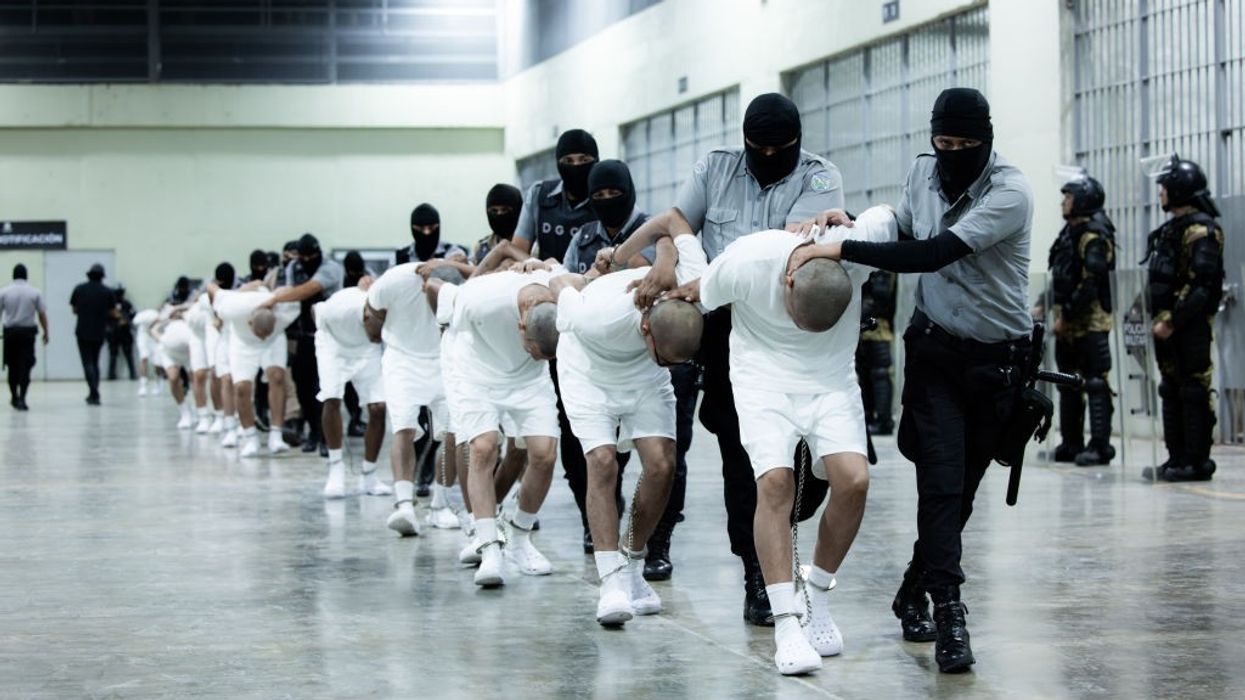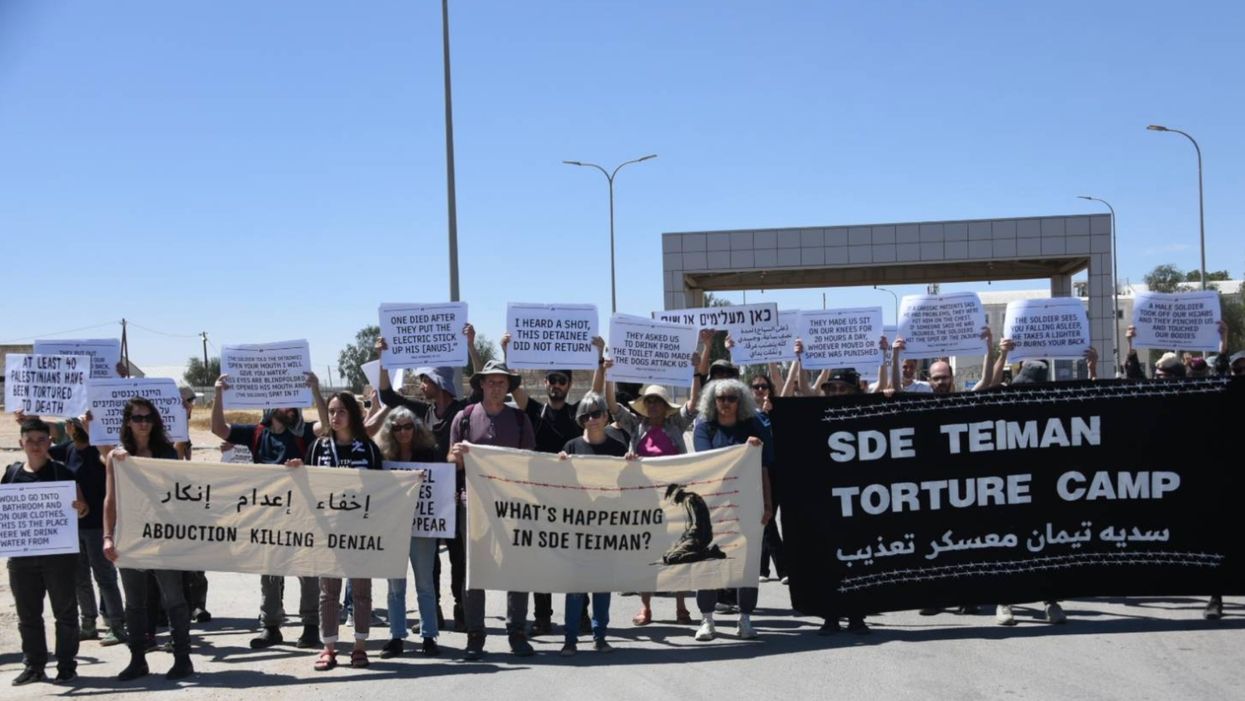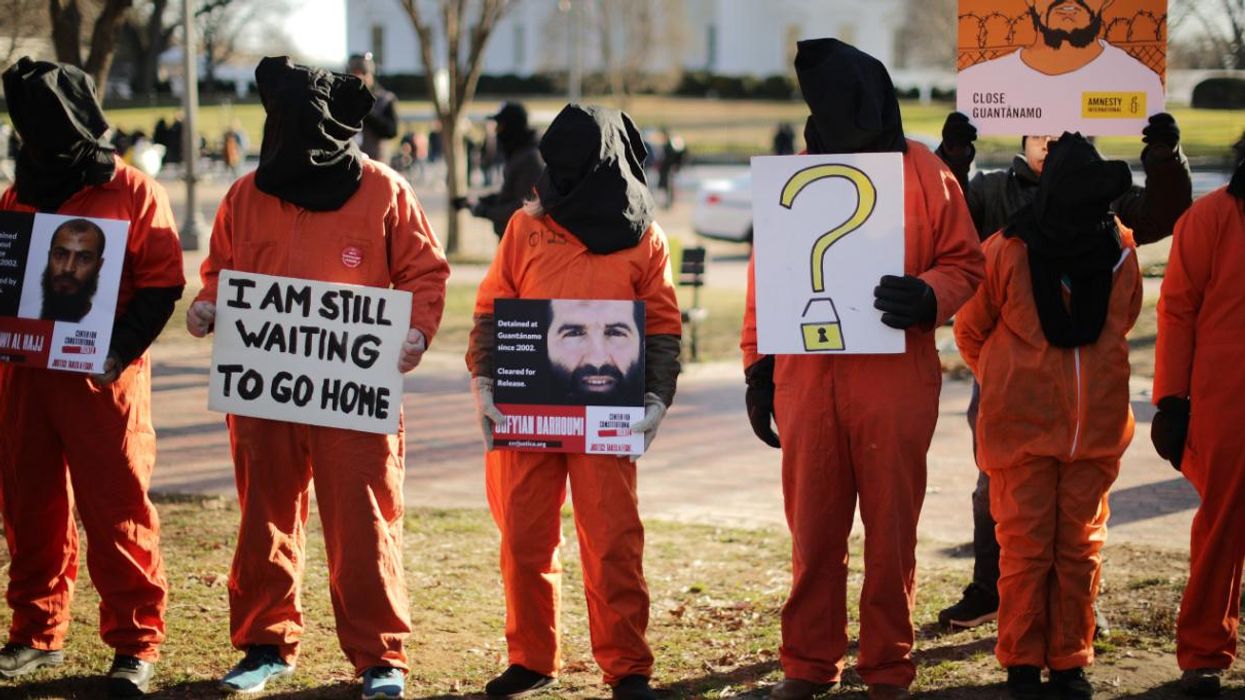Federal Judge Rules Trump Deportations Under Alien Enemies Act 'Unlawful'
Also Thursday, Human Rights Watch released a report calling on Congress to repeal the wartime authority, the statute invoked by the U.S. President Donald Trump in March to deport over 130 Venezuelan nationals.
A federal judge ruled on Thursday that U.S. President Donald Trump has illegally invoked the Alien Enemies Act and barred further deportations under the statute, a centuries-old wartime authority used to justify the deportation of over 130 Venezuelan nationals in March to a megaprison in El Salvador.
"The court concludes that the president's invocation of the AEA through the proclamation exceeds the scope of the statute and, as a result, is unlawful," according to U.S. District Judge Fernando Rodriguez, Jr., a Trump appointee.
The judicial rebuke comes the same day that the group Human Rights Watch issued a report making the case that the Alien Enemies Act (AEA) is "entirely incompatible" with modern international law that constrains the United States with respect to human rights, and therefore should be repealed.
The report from Human Rights Watch, titled United States: Repeal the Alien Enemies Act, A Human Rights Argument, explains that the AEA was codified in 1798 and gives the president authority to detain and expel noncitizens who are nationals of a foreign country considered hostile.
The president can draw on these powers when there is a "declared war" between the U.S. and a foreign power, or when an "invasion or predatory incursion is perpetrated, attempted, or threatened" against the U.S. by a foreign nation.
When invoking the AEA, Trump accused the Venezuelan gang Tren de Aragua (TdA) of "perpetrating, attempting, and threatening an invasion or predatory incursion" in the U.S., and said that the men targeted for deportation under the AEA have ties to TdA—though available reporting also casts doubt on this assertion.
The judge in his ruling on Thursday said that the government's evidence that TdA's presence in the U.S. constitutes an "invasion" or "predatory incursion" as characterized by the AEA fell short.
The American Civil Liberties Union cheered the court's decision. ACLU attorney Lee Gelernt said in a statement on Thursday: "The court ruled the president can't unilaterally declare an invasion of the United States and invoke a wartime authority during peacetime."
While the ruling is likely also welcome to Human Rights Watch, which has already spoken out against the administration's use of AEA, in their latest report the group argues that the law should be outright repealed.
"Congress has an important role in challenging the Trump administration's use of this outdated law to supercharge its mass deportation machine," said Akshaya Kumar, crisis advocacy director at Human Rights Watch and lead author of the report, in a statement on Thursday, prior to the release of Thursday's court ruling.
Since 2020, Sen. Mazie Hirono (D-Hawaii) and Rep. Ilhan Omar (D-Minn.) have repeatedly introduced the "Neighbors Not Enemies Act," which would repeal the Alien Enemies Act. The duo reintroduced it again on January 22, days after U.S. President Donald Trump returned to the White House. The report recommends immediate debate and consideration of the Neighbors Not Enemies Act of 2025. With Republican majorities in both chambers, passage of the Neighbors Not Enemies Act is highly unlikely.
The report argues that the United States is not engaged in any war or armed conflict that is relevant to the administration's current use of the AEA, and that the law "was drafted, and has always been applied and interpreted, in a manner that is adversarial to modern-day international human rights law frameworks and the laws of war."
The U.S. is a part of multiple human rights treaties that compel the government to ensure respect for rights like due process, and protection from removal from the U.S. to countries where a person would likely face persecution or torture, according to the report.
For example, in 1994 the United Nations Convention Against Torture and Other Cruel, Inhuman, or Degrading Treatment or Punishment (CAT) was ratified by the U.S. with the understanding the treaty "was not self-executing and required implementing legislation to be enforced by U.S. courts," according to a 2009 Congressional Research Service report.
The U.S. did enact statutes and regulations to prohibit the transfer of people to countries where they may be tortured, including the Foreign Affairs Reform and Restructuring Act of 1998.
According to Human Rights Watch, CAT prohibits "the U.S. from expelling, returning, or extraditing any person to a state where there are 'substantial grounds' for believing that he would be in danger of being subject to torture.'"
In Thursday's court ruling, the judge noted the petitioners had invoked this protection under CAT as one of their legal arguments, but the court concluded that it does "not possess jurisdiction to consider petitioners' challenges" to Trump's AEA executive order based on CAT.


